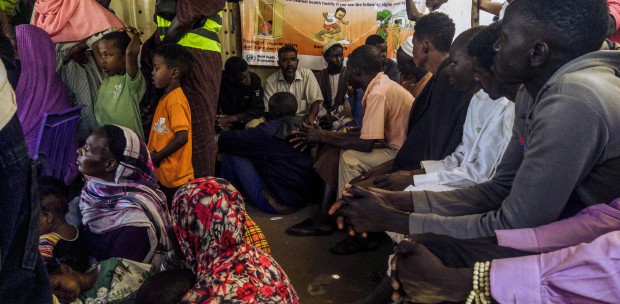THE South China Morning Post reported recently that a "transgender businesswoman" who fled Malaysia "after being accused of insulting Islam by cross-dressing" had been granted asylum in Australia.
The individual, who had been "on the run" for several months "resurfaced in Thailand" on September 8, after which she was detained, charged and fined by the Thai authorities for an immigration offence.
She was subsequently released, whereupon she went under the radar again, only emerging last week after she had obtained asylum in Australia. She told the Australian media, she is "never returning to Malaysia".
Her story prompted me to find out the governing law relating to asylum for the LGBT community.
According to Jasmine Dawson, the treatment of lesbian, gay, bisexual, transgender, intersex, and queer (LGBTIQ) asylum seekers by the Australian authorities " is often discriminatory and persecutory".
She added that whilst those in Australia with citizenship can enjoy the protection of world class anti-discrimination legislation, "we actively send LGBTIQ asylum seekers to places where they are likely to be persecuted".
An Australian news portal (https://www.starobserver.com.au/) stated on July 4, 2021, that refugees and asylum seekers are "an overlooked sector within the LGBTQI community in Australia."
In his treatise on the subject ("Sexual orientation and gender identity as a basis for refugee claims in Australia"), William Betherton said that under the 1951 Convention Relating to the Status of Refugees, and its 1967 Protocol, an asylum applicant must prove that that for reasons of race, religion, nationality, or membership of a social group or political opinion, the individual has a "well-founded fear of persecution", and is unable or unwilling to avail himself (herself) the protection of his/her state.
Past persecution establishes a rebuttable presumption of "well-founded fear", and "persecution" means the infliction of "serious harm" which includes physical harm, sexual harm, psychological harm, extremely severe discrimination, arrests, detentions, imprisonment or death threats.
According to Betherton, more than 2,000 murders of transgender persons were reported between 2009 and 2016, with over 80 per cent of them occurring in Latin America. Meanwhile, the UK and US reported a surge in the number of homophobically motivated hate killings.
The UNHCR portal states that although the persecution of people because of their sexual orientation and gender identity is not a new phenomenon, it is only in recent years that a growing number of asylum claims have been made by lesbian, gay, bisexual, transgender and intersex (LGBTI) individuals.
To assist asylum seekers, the UN agency had issued "several interpretive instruments" on the specific protection needs of these individual, including "Guidelines on Claims to Refugee Status based on Sexual Orientation and/or Gender Identity" (shortly referred to as the UNHCR Guidance on LGBTI Asylum Claims).
A recent case from the UK Supreme Court shows how an asylum application should be dealt with by the judiciary. In HJ (Iran) and HT (Cameroon) v Secretary of State for the Home Department [2010] UKSC 31, the appellants are homosexual men from Iran and Cameroon, respectively.
They sought asylum in the UK on the basis that they would face persecution if they are returned to their home countries. In Cameroon, homosexuality is punished by imprisonment, whilst in Iran the offence carries the dealth penalty.
The Court of Appeal found that, if returned to their respective home countries, the appelllants would conceal their sexual orientation in order to avoid the risk of being persecuted. Accordingly, neither party had a 'well-founded fear of persecution' that entitled him to protection under the Convention. The court dismissed their appeal.
On further appeal to the Supreme Court, the latter held that the 'reasonable tolerability' test applied by the Court of Appeal is contrary to the Convention and should not be followed. The case was then remitted to the trial court for reconsideration in light of the detailed guidance provided by the Supreme Court.
The lesson from this case is that gay people (as well as transgenders like the Malaysian individual who found asylum in Australia) is entitled to freedom of self-expression in matters that affect their sexuality, just like "straight people".
The Convention does not permit asylum applicants to be returned to their home country 'on condition' that they take steps to avoid offending their persecutors. For the purpose of the Convention, persecution does not cease to be persecution because those persecuted can eliminate the harm by taking "avoiding action".
*The writer was a federal counsel at the Attorney-General's Chambers and visiting professor at Universiti Teknologi Malaysia. He is now a full-time consultant, trainer and author






